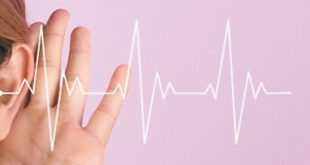Overcoming an unhealthy eating disorder and the depression that often accompanies it is possible.
Although it is not often thought of as such, binge eating disorder is a mental illness that is characterized by recurring episodes of excessive over-eating. Binge-eating disorder is the most common type of all eating disorders and has serious health implications if left untreated.
Almost everyone overeats on occasion, such as having seconds or thirds of a holiday meal. But for some people, this isn’t a rare occurrence; a binge eater excessively overeats frequently. After a binge you feel disgruntled with yourself, shamed, embarrassed. Binge eating often turns into something you do in secret.
If binge eating is ruining your quality of life, you may be deeply embarrassed about gorging and promise yourself you will stop, but you feel such a compulsion, a craving, that you can’t resist and continue binge eating. Fortunately treatment can help you if you suffer from this disorder.
According to the Mayo Clinic, you may have no obvious physical signs or symptoms when you have binge eating disorder. You may appear normal on the outside. You could be a normal weight or obese. However, you likely have numerous behavioral and emotional signs and symptoms, such as:
• Eating for you what is a large amount of food
• Even when you’re full or not hungry you eat
• Eating quickly during an eating binge
• Eating until you’re uncomfortably full
• Often eating alone
• Feeling powerless about your eating
• Feeling depressed, disgusted, ashamed, guilty or upset about your eating
• Feeling alone and not able to talk about your feelings
• Frequently dieting, possibly without weight loss
• Losing weight only to gain it right back, so called yo-yo dieting
After a binge, you may try to diet or eat normal meals. But restricting your eating may simply lead to a starvation diet resulting in more binging, manifesting as a pernicious routine.
It is highly likely that you will develop psychological and physical problems related to binge eating. Some of these complications arise from being overweight due to frequent bingeing. Other complications may occur because of unhealthy yo-yo eating habits — bingeing followed by harsh dieting. In addition, food consumed during a binge is often high in fat and low in protein and other nutrients, which could lead to health problems such as.
• Depression
• Suicidal thoughts
• Insomnia
• Obesity
• High blood pressure
• Type 2 diabetes
• High cholesterol
• Gallbladder disease and other digestive problems
• Heart disease
• Some types of cancer
• Joint pain
• Muscle pain
• Headache
• Menstrual problems
Gulfcoast Clinical Research can help. Call 239-561-0009 to learn about our ongoing clinic studies in Fort Myers for binge eating, depression and other mental disorders.
Typically, treating binge eating disorder on your own isn’t effective. In addition to professional help, you can take these self-care steps to reinforce your treatment plan:
Stick to your treatment. Don’t skip treatment sessions. If you have a meal plan, do your best to stick to it and don’t let setbacks derail your overall efforts.
Avoid dieting. Trying to diet can trigger more binge episodes, leading to a vicious cycle that’s hard to break. Talk with your doctor about appropriate weight management strategies for you — don’t diet unless it’s recommended for your eating disorder treatment and supervised by your doctor.
Eat breakfast. Many people with binge-eating disorder skip breakfast. But, if you eat breakfast, you may be less prone to eating higher calorie meals later in the day.
Don’t stock up. Keep less food in your home than you normally do. That may mean more-frequent trips to the grocery store, but it may also take away the temptation and ability to binge eat.
Get the right nutrients. Just because you may be eating a lot during binges doesn’t mean you’re eating the kinds of food that supply all of your essential nutrients. Talk to your doctor about vitamin and mineral supplements.
Stay connected. Don’t isolate yourself from caring family members and friends who want to see you get healthy. Understand that they have your best interests at heart.
Get active. Ask your health care provider what kind of physical activity is appropriate for you, especially if you have health problems related to being overweight.
Help is available. You do not have to tackle this disorder alone. If binge eating or depression is affecting you or someone you love, please call 239-561-0009 to discuss available clinical study programs. We are currently researching breakthrough medications and treatments that could reduce or stop these behaviors altogether. If you would like help, please contact us today, and begin the process of getting better. You do not have to do it alone, call 239-561-0009 today!
 Southwest Florida's Health and Wellness Magazine Health and Wellness Articles
Southwest Florida's Health and Wellness Magazine Health and Wellness Articles

